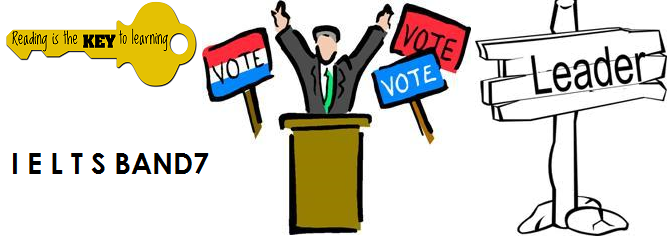IELTS Reading Course # President
Defying(to challenge the power of)predictions (foretell a future), President Recep Tayyip Erdogan’s Justice and Development Party, the A.K.P., won a conclusive (convincing)victory (a success or triumph over an enemy in battle or war)in Sunday’s national elections in Turkey, freeing it from the need to form a coalition (a combination or alliance, especially a temporary one between persons, factions, states, etc.)to stay in power. Mr. Erdogan proclaimed (to announce or declare in an official or formal manner)it a vote “in favor of stability,” and that is what it apparently (readily seen)was — though it was Mr. Erdogan who churned (to be changing rapidly or be in a confused state)up much of the turmoil (a state of great commotion, confusion, or disturbance; tumult;agitation)that frightened (afraid)voters back into his camp.
Though the A.K.P. won about half the vote, it did not gain enough seats in Parliament to enable Mr. Erdogan to change the Constitution to create the strong executive (pertaining to or charged with the execution of laws and policies or the administration of public affairs)presidency he has sought since he assumed the office last year. But the A.K.P. majority will mean a continuation (extension or carrying to further point)of 12 years of one-party rule, and most probably a continuation of Mr. Erdogan’s increasingly authoritarian (of or relating to a governmental or political system, principle, or practice in which individual freedom is held as completely subordinate to the power or authority of the state, centered either in one person or a small group that is not constitutionally accountable to the people)domination (the act or instance of dominating)of the Turkish government.
Mr. Erdogan engineered (a person who operates or is in charge of an engine)Sunday’s vote after the last elections, on June 7, not only failed to secure the seats he needed for his presidential scheme, but cost the A.K.P. its majority and allowed a pro-Kurdish coalition, the Peoples’ Democratic Party, to enter Parliament for the first time. Instead of helping to form a coalition government after that vote, Mr. Erdogan called for new elections.
In the intervening (to come between disputing people, groups, etc.)time Turkey resumed (to take up or go on with again after interruption) bombing attacks on Syrian Kurds and violence flared (to start up or burst out in sudden, fierce activity, passion, etc.)in the country’s volatile southeast. Opposition politicians were assailed (to attack vigorously or violently)and the government’s longstanding (existing or occurring for a long time) harassment (the act or an instance of harassing, or disturbing, pestering, or troubling repeatedly; persecution)of the news media reached new levels. On the eve of the election, the police raided (a sudden assault or attack, as upon something to be seized or suppressed)the last television channels critical of Mr. Erdogan, which had belonged to an Islamic movement that had gone from support of Mr. Erdogan to fierce opposition.
In the early years of A.K.P. rule, Mr. Erdogan had been hailed (to cheer, salute, or greet)in Europe and the United States as the face of moderate Islam. Turkey’s economy (the management of the resources of a community, country, etc.,especially with a view to its productivity)bloomed (to flourish or thrive), human rights improved as Turkey sought membership in the European Union and Mr. Erdogan achieved a cease-fire with Kurdish rebels (a person who refuses allegiance to, resists, or rises in arms against the government or ruler of his or her country). But much of that has been undermined (to weaken or cause to collapse by removing underlying support, as by digging away or eroding the foundation), and Mr. Erdogan has come under increasing criticism (the act of passing judgment as to the merits of anything)in the West, as he has turned steadily toward authoritarian (favoring complete obedience or subjection to authority as opposed to individual freedom)rule, assisted by his ally (to associate or connect by some mutual relationship, as resemblance or friendship)and prime minister, Ahmet Davutoglu.

